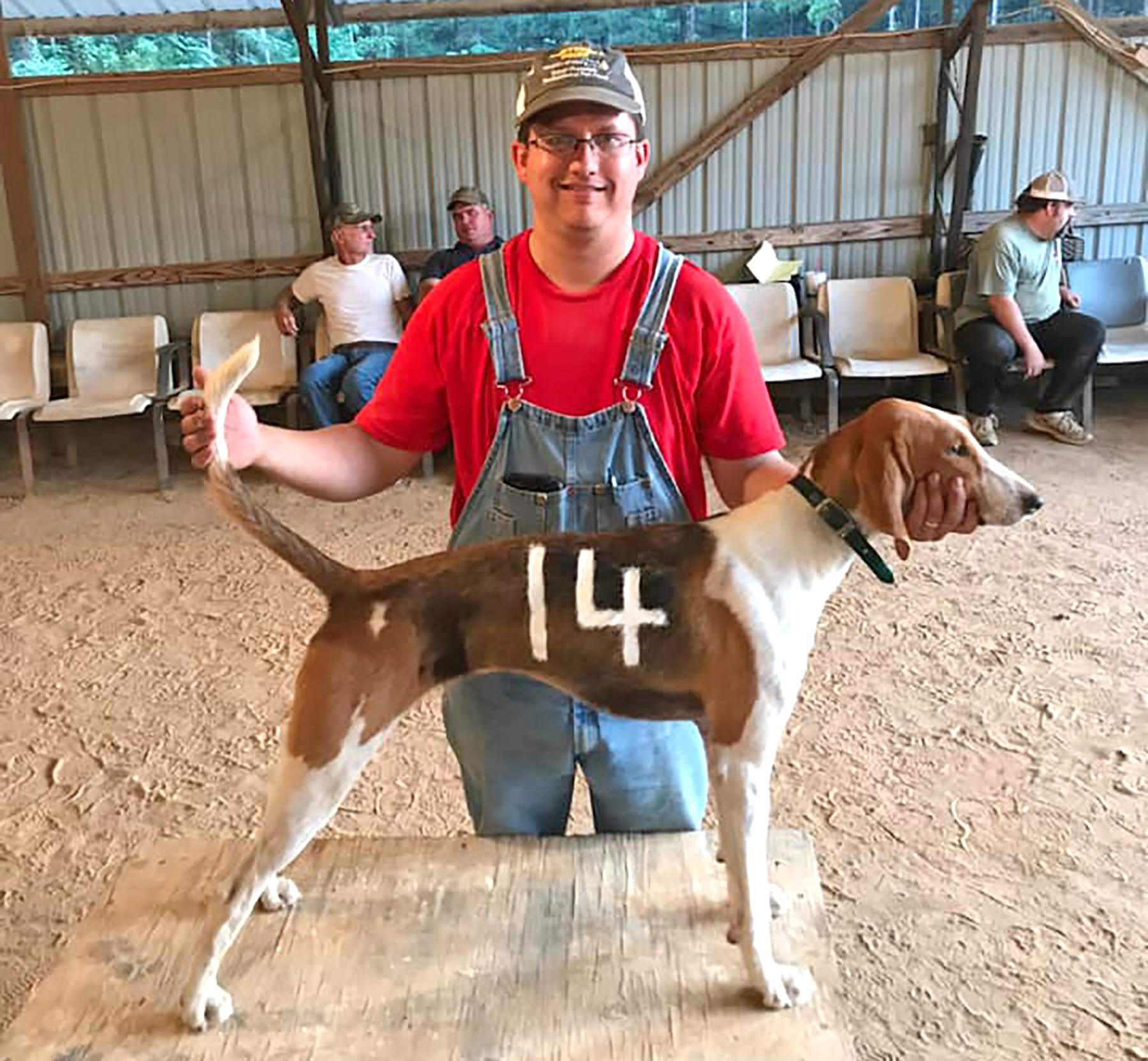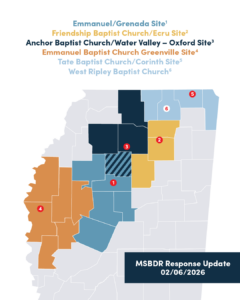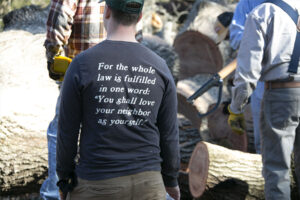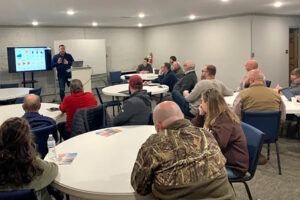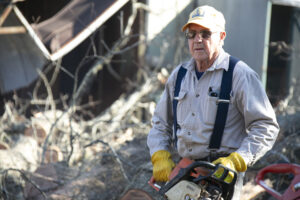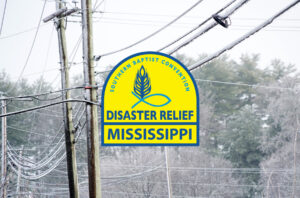By Shawn Hendricks
The Baptist Paper
Pictures of cows, farmland, competition foxhounds and him occasionally singing lead tenor in his church’s quartet can quickly be found on Rusty Walton’s social media feed.
While these things are important to him, those who know him best might add that this bivocational pastor, who also helps run a funeral home, is “dead serious” about ministry.
In Union, Mississippi, a rural town of about 2,000 — where everybody pretty much knows everybody — Walton shared how he finds joy in impacting his community for Christ while embracing the unexpected.
“I get up every day not knowing what the day holds,” he said. “The next phone call may be from a wife who has walked in and found her husband dead.”
Since he surrendered to ministry as a teenager, Walton, 42, has preached and consoled the grieving through his work at Milling Funeral Home in Union. Today he is the vice president and part owner at the funeral home and also pastor of Pine Grove Baptist Church, where he has served for the past 15 years.
As a licensed funeral director and embalmer, Walton believes his work at Milling and as a pastor go “hand in hand.”
Noting Hebrews 9:27 that addresses how every person has a set time they will die, he often has opportunities to tie his work at the funeral home into his sermons.
“The two definitely go hand in hand,” he said. “I’ve watched families grieve. I’ve watched families walk through this, and the one way they made it is through was Christ.”
He sometimes tells the congregation, “I see it every day. You are going to die,” then builds his sermon from that reality.
Like most bivocational pastors, Walton said he doesn’t have an “off day.” The only time he doesn’t answer his phone, he noted, is when he’s preaching in the pulpit — even then, his wife of 22 years, Paige, may still answer the phone for him. Working for a funeral home that serves several communities, the next funeral is always looming.
Walton recalled one year he preached 50 funerals. The average number, according to some reports, is from 24 to 36 annually.
But the opportunity to point people to Christ makes it worth it, he said.
“It’s about the opportunity that hopefully — during those 50 funerals — I was able to share the gospel with somebody that got saved,” he said. “You’re able to minister to people who are hurting and be there for them, be there with them in their time of grief.
“That really drew me … to be able to help somebody who needed it.”
When tragedy strikes in a small town, it can be especially difficult, he said. “Because you’ll know somebody. You’ll know their family or very possibly you’ll know (the person who died).”
He added, “It also brings sadness when I have to bury one of my old Sunday School teachers or the lady that taught me Psalm 23. That’s always a hard thing. It’s rewarding but still hard.”
When the day is done, whether at the church or at the funeral home, Walton points out he still has two hours left of farm work to do when he gets home.
Raising cattle, tending to the routine farm duties and more than a dozen competition foxhounds also keeps him busy.
Even when he gets that call in the middle of the night that someone has lost a loved one, Walton savors the opportunity to minister to families in crisis.
“Just the fact that they thought of and called me makes me in awe of the Lord using me.”
Thoughts on helpful things to say — and not say — at funerals
Walton has probably heard it all when ministering to grieving families. He says he’s also learned what to say — and not to say.
One way a person can respond, Walton noted, is “just simply being there, putting your arms around them and saying, ‘Hey, I want you to know I love you, I’m here for you. If there is anything specific I can do, please let me know.’”
Avoid saying things like “I know what you’re going through.” Each person’s situation is unique, and you usually don’t have any idea what they are specifically going through, he said.
When asked if people should say things like “God has gained another angel,” “Your loved one is looking down on us” or something similar, Walton says “no, no, no.”
“If they are a believer, that person is with Christ,” Walton said. “To be absent from the body is to be present with the Lord.” When wondering what to say, less is usually more.
He added for believers, “There is a great day coming of hope, reunion.”

